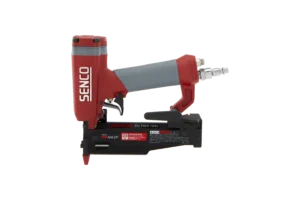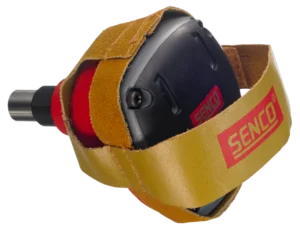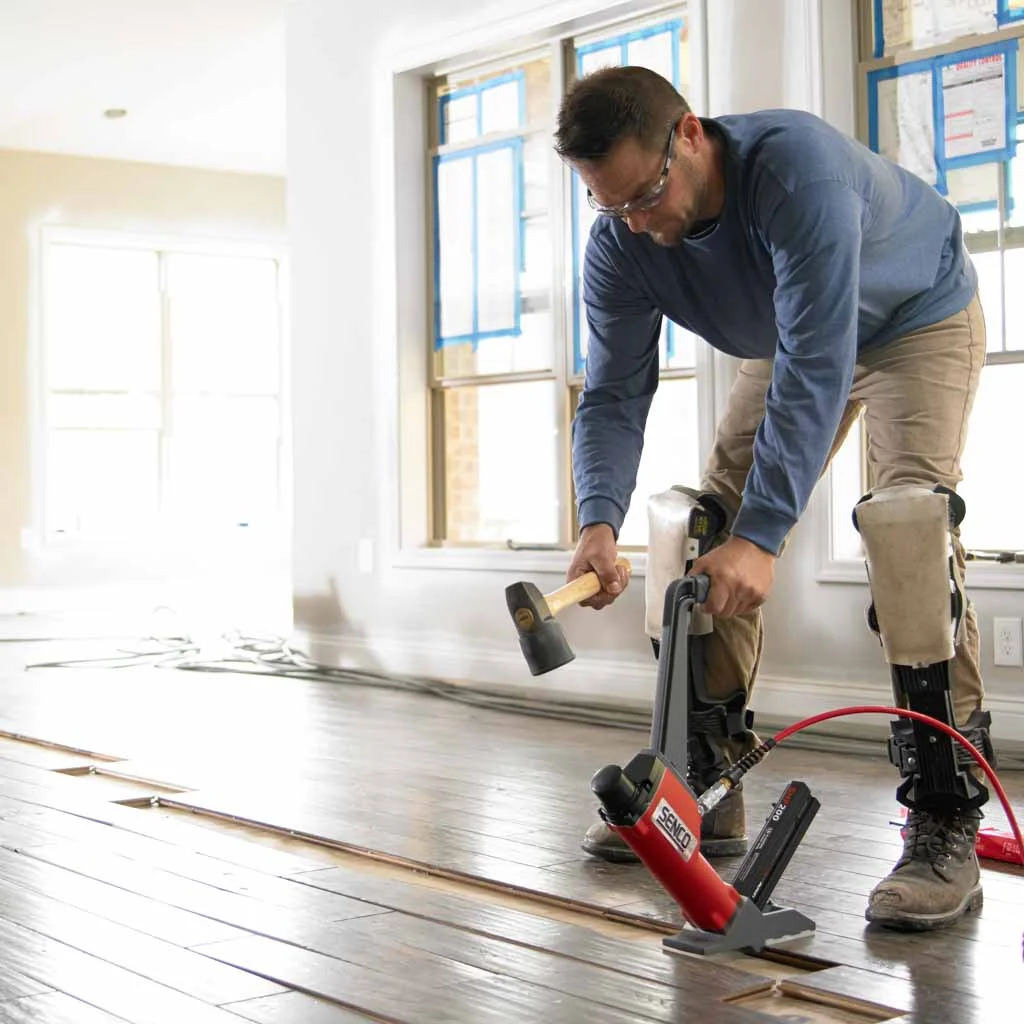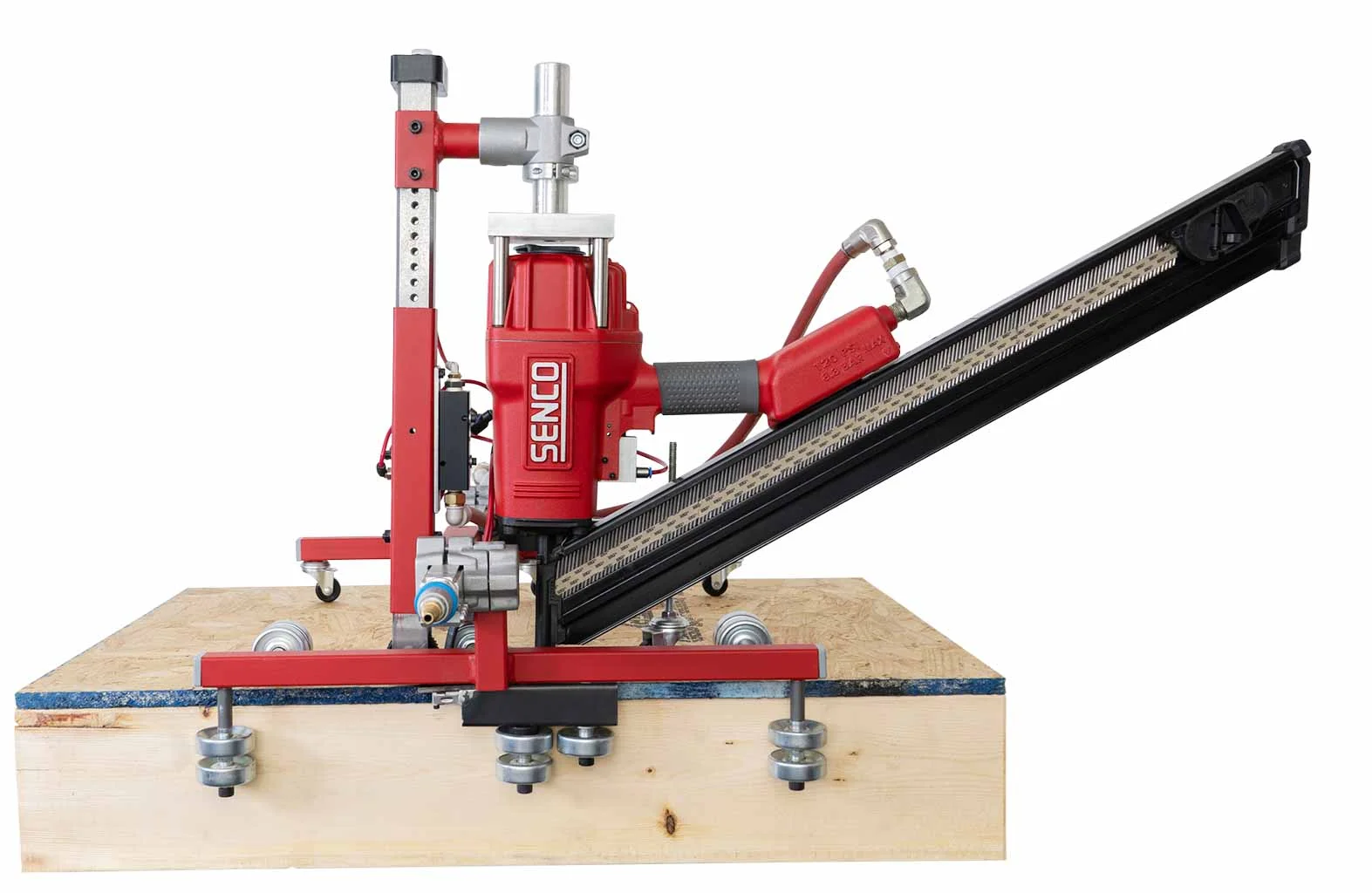Do I Need a Corded or Cordless Nailer?
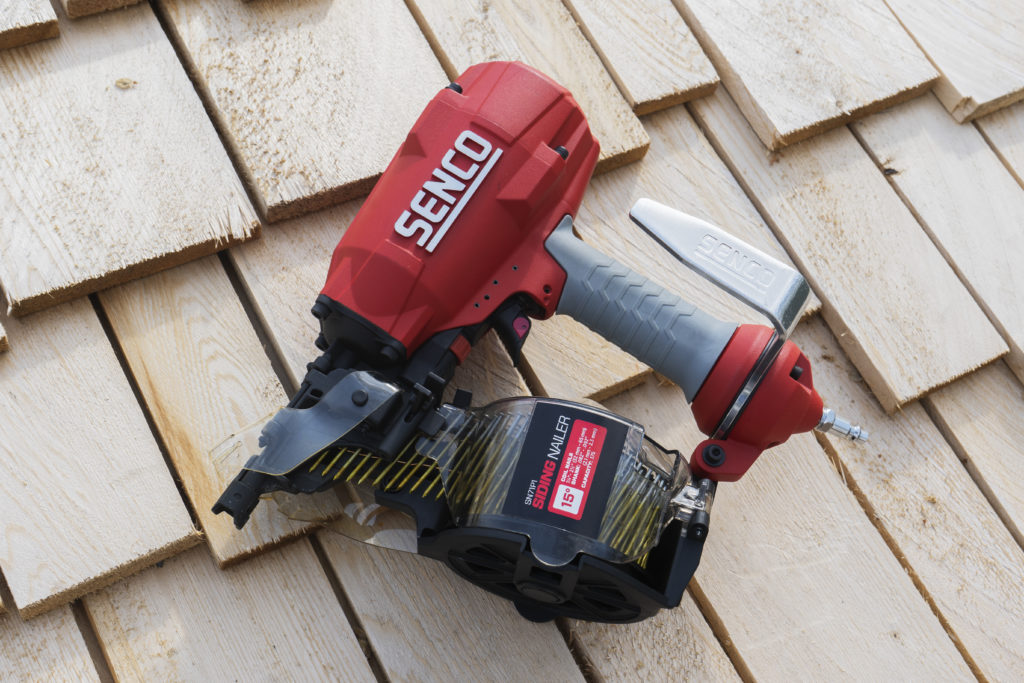
Some jobs are better left to traditional pneumatic nail guns.
Cordless nailers are becoming more common on job sites of every kind, but traditional pneumatic nailers, which require a hose and an air compressor, aren’t likely to become obsolete anytime soon.
There are no longer obvious power differences between traditional nailers and cordless pneumatic technology like SENCO’s FUSION, so choosing the right tool typically comes down to personal preference, as well as the requirements of the job. Cordless nailers are useful for those who require mobility, while corded nailers deliver consistent power on sites that can accommodate an air compressor.
However, there are several types of jobs in which the balance still swings toward compressor-powered pneumatic nailers. On high-volume jobs like siding or roofing, as well as jobs that require users to maneuver in tight spaces, for example, corded nailers are still king.
Here are a few types of nailers that work best corded:
Pin Nailers
Pin nailers are most commonly used in fine-finish carpentry and woodworking. These nailers fire slight-head or headless pins that make nearly invisible holes, requiring far less touch-up work than brad or finish nails. Maneuverability and light weight are valued features of pin nailers, as they’re often used in corners and other tight spaces. A narrow nosepiece, like those found on SENCO’s 21- and 23-gauge pin nailers, allows users to shoot nails in the intricate designs of trim pieces, further hiding holes.
Adding a battery and a bulky power source to a cordless pin nailer adds a considerable amount of size and heft, making them harder to use in many traditional applications. Additionally, electricity is often available on the sites where pin nailers are used – in woodshops and on late-stage builds and remodels – so hooking up a compressor will deliver more consistent power. Additionally, small nailers like pin nailers don’t require large compressors. Space-saving, lightweight compressors like SENCO’s PC1010 are much easier to maneuver on a job site than a larger compressor.
Coil Nailers
Coil nailers, like SENCO’s new SN71P1 siding nailer, are made for jobs that require a high volume of nails to be driven quickly. Standard nailers hold 30 to 60 nails, whereas a coil nailer’s drum magazine holds up to 375 nails. Coil nailers allow users to spend less time reloading, which improves productivity on jobs that require speed and a lot of nails, like roofing, siding and some types of fencing.
A cordless coil nailer adds another task to your to-do list – power management. Most batteries require a charge after about 600 nails, which is plenty for punch-out, framing, finish carpentry and many other applications. However, swapping batteries on a coil nailer, which is purpose-built for speed, may require additional trips down the ladder and impact overall productivity. Additionally, some brands of cordless nailers, such as those that rely on an electric flywheel to drive nails, have a noticeable delay between the pulling the trigger and firing the nail, further reducing productivity.
Palm Nailers
Palm nailers are typically the size of a baseball and, as the name suggests, fit in the palm of your hand. Although they are pneumatic, palm nailers like SENCO’s Mini Hand Nailer have as much in common with an air hammer as a nail gun. A piston powered by your air compressor repeatedly hammers nails until they are flush. Unlike traditional nailers, palm nailers don’t feed nails automatically. However, the small size of the tool makes it easy to use in spaces that are too small to position a traditional nailer or swing a hammer.
Like the pin nailer, adding additional size and weight to the tool with a battery and power source would make it harder to use in tight spaces, eliminating the purpose of the tool. By design, a palm nailer requires the user to exert manual force while driving nails – the additional weight of a cordless tool has the potential to fatigue the user.
The Future
While more and more tools are available in cordless models, traditional pneumatic tools are still viable and will be for the foreseeable future – especially in the more specialized tasks outlined above. As cordless technology continues to improve in coming generations, recommendations may change, but there is still a strong case to be made for corded pneumatic fastening.
SENCO offers a full range of pneumatic nail guns, staplers and other fastening tools, as well as select cordless tools featuring FUSION cordless pneumatic technology.
| Browse Corded Nailers |
| Browse Cordless Nailers |
